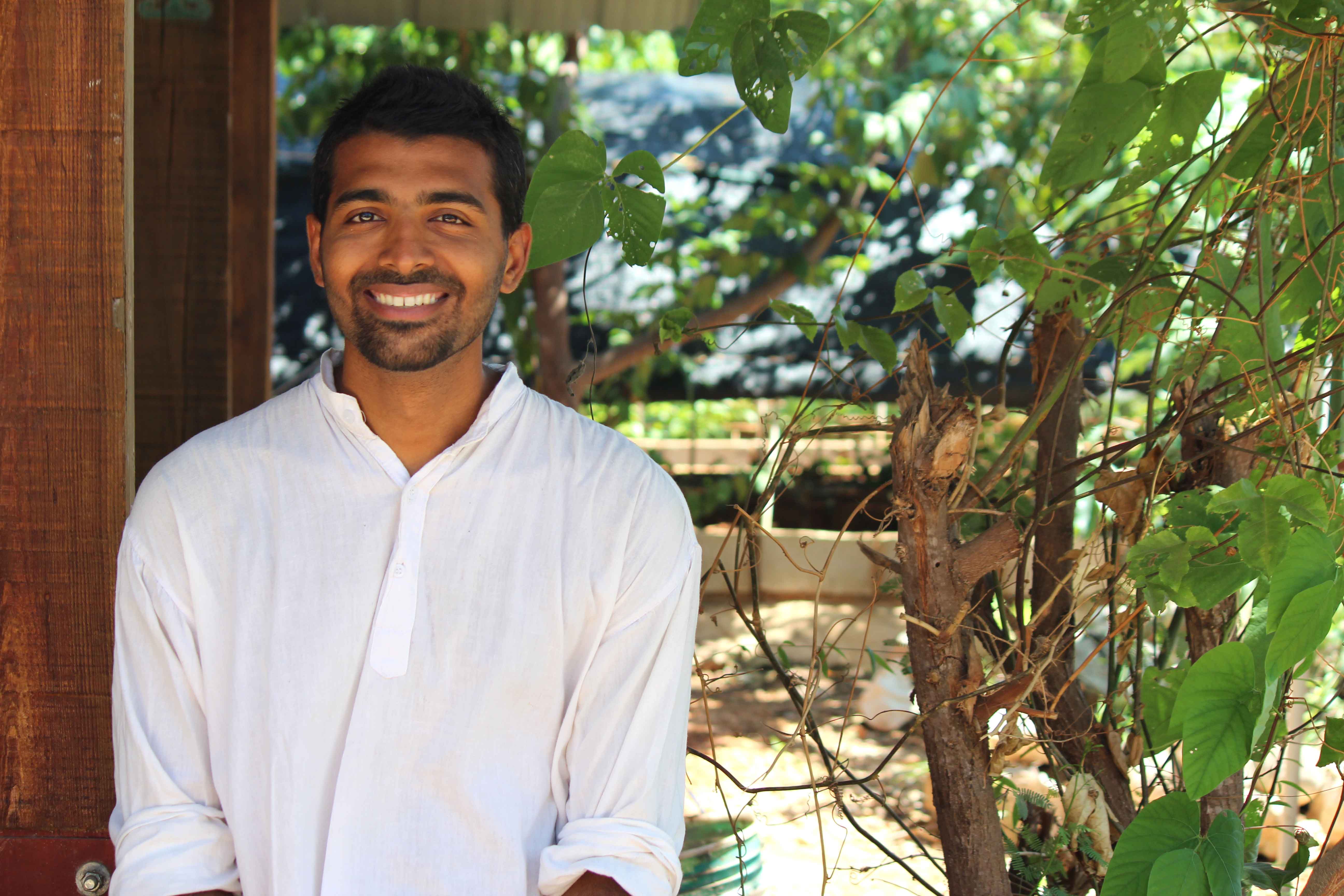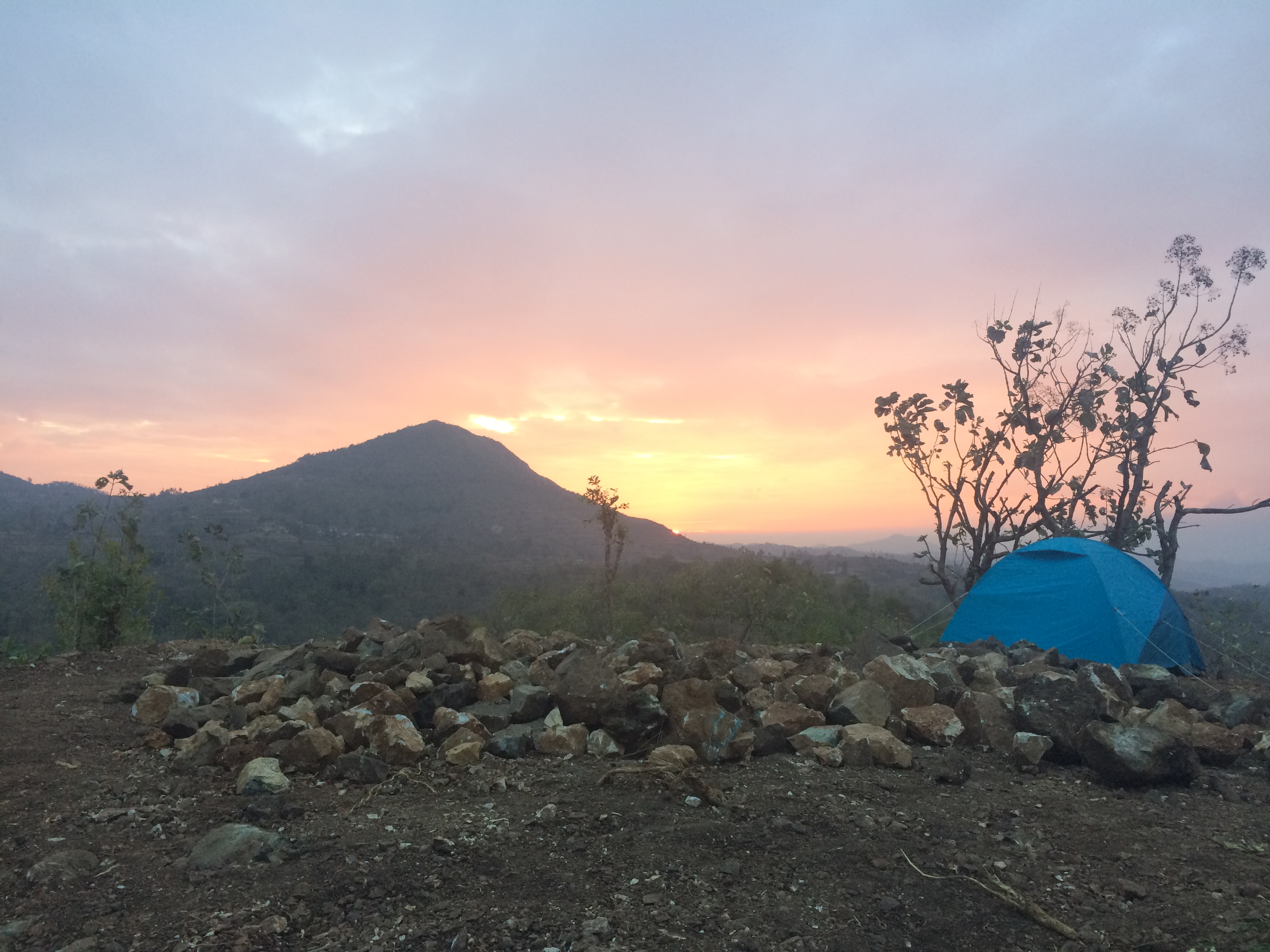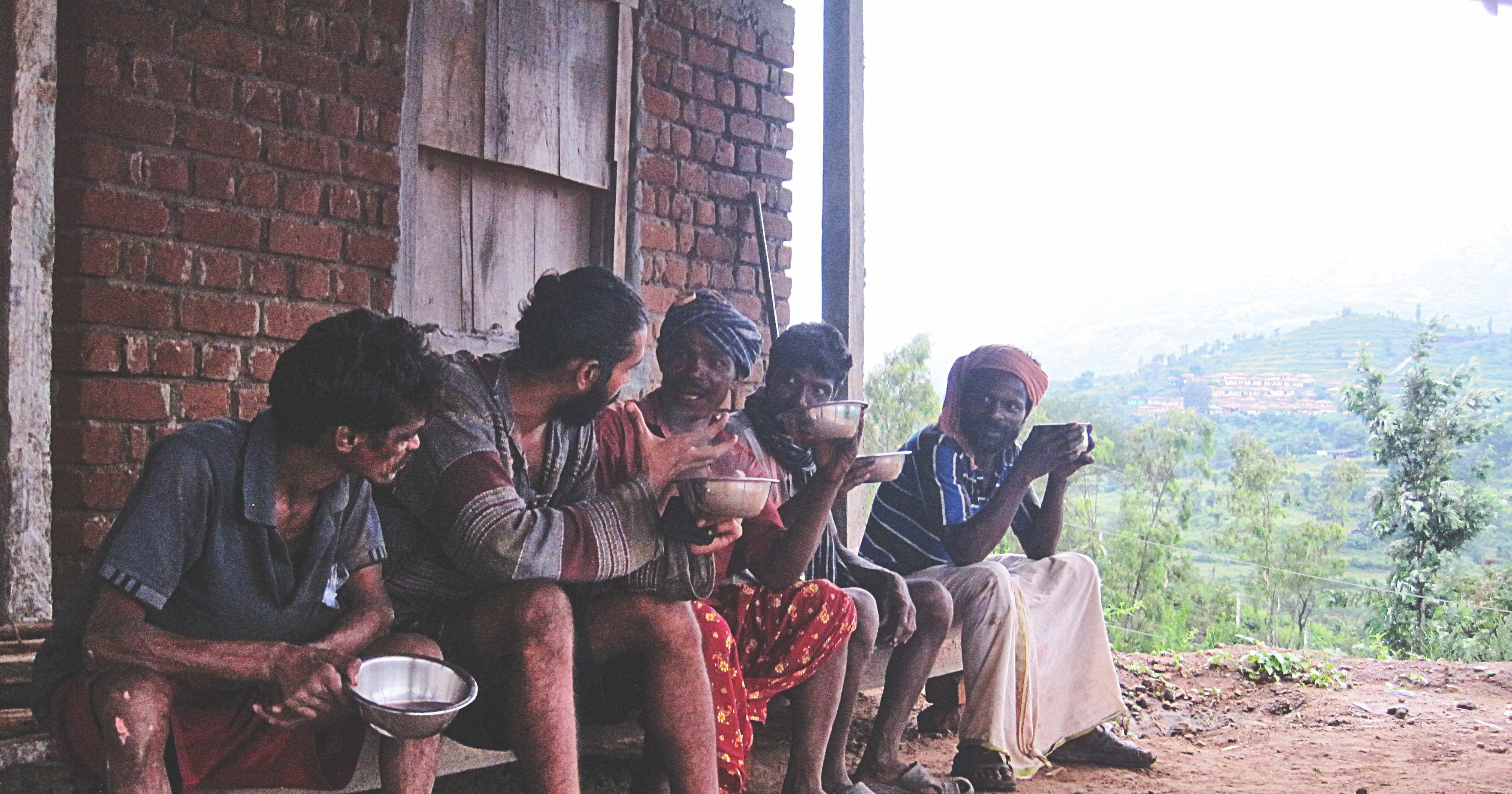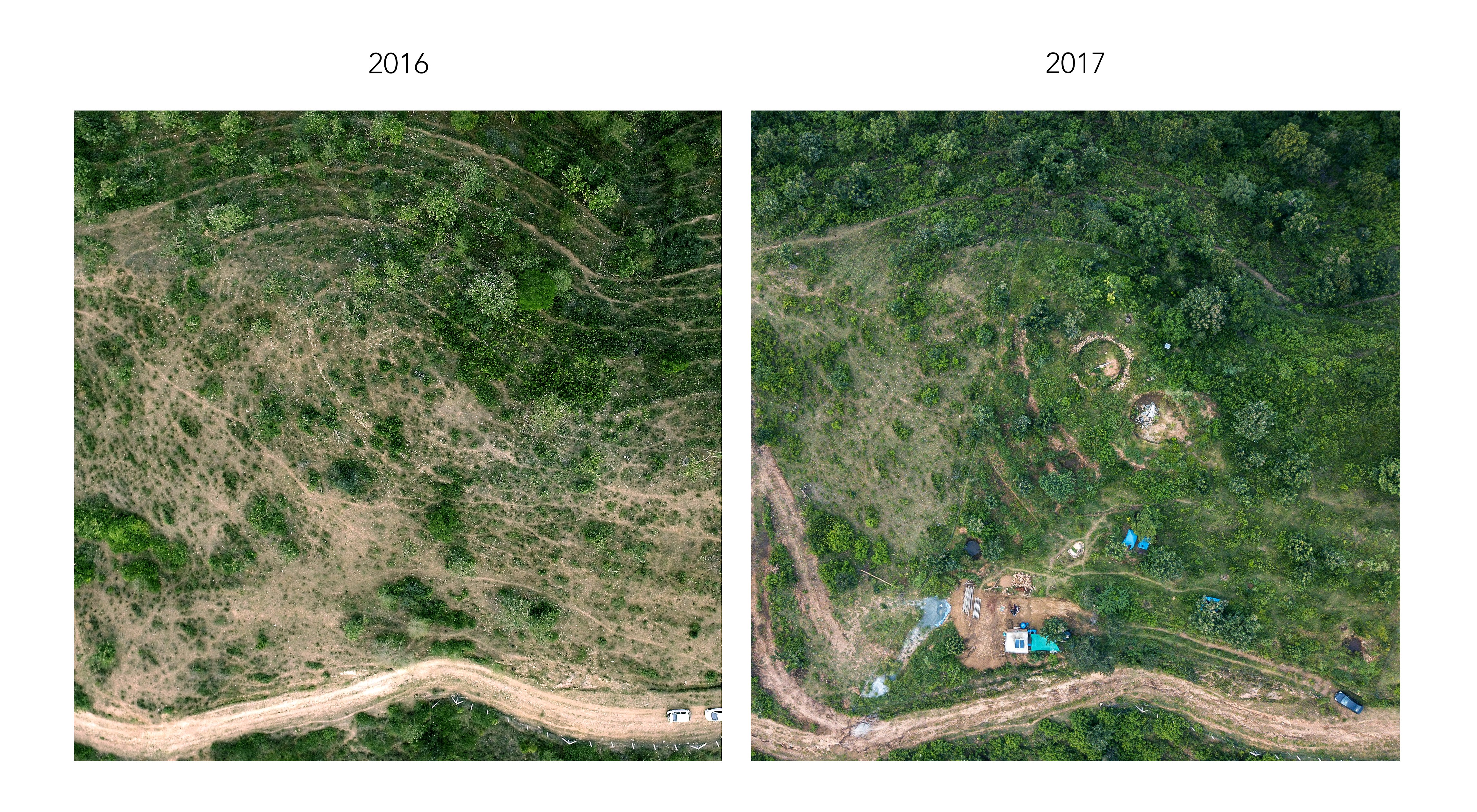Gaia Grid: One Man’s Attempt to Create a Self-Sustaining Community in Kerala
Perhaps if we all were to buy things that are made locally, we could contribute to improving the economy in a year’s time.

“There is so much corruption in India!”
“Oh, the potholes in this city will kill someone someday!”
“India’s economy is in the pits.”
I am sure that even if you have not said these sentences out loud, you must have been privy to conversations in which they are uttered often enough. Most of us believe that change is not something that individuals can bring about entirely on their own.
Harsh Valechha, a financial consultant turned farmer believed and ascribed to this very thought process until one day something changed and he decided to try and make a difference.

We, at The Better India, caught up with Harsh to understand his journey.
Harsh was born and raised in Kolkata, and after completing his education, he worked with different multi-national corporations. His work took him out of the country, and he narrates the instance when he decided to try and make a change. “I was at a social gathering, and we were a group of young Indians standing around cribbing about how nothing much would happen for India, the economy would see no change. While we were doing this, a friend of mine took me by my hand and led me to my toilet and opened up a cabinet and started pointing to everything I owned that was not made in India.”
“He said to me that if I wanted to make a change, I must start by buying things made in India, I could start by simply changing my consumption habits and buying local.”

That was the first time that Harsh thought about the power that an individual has. Perhaps if we all were to buy things that are made locally, we could contribute to improving the economy in a year’s time, he thought. And with that thought, he began a journey away from his financial consultant life.
“Soon after that conversation, I woke up one morning knowing that I needed to quit the job I was pursuing. I had no idea then what I would do. All I knew with certainty was that I must quit.” Harsh speaks of being inspired by Carl Jung, a Swiss psychiatrist and psychoanalyst who is considered to be the founder of analytical psychology, a school of psychotherapy. His theory of synchronicity, which can be summed up as, ‘meaningful coincidences,’ in particular had a very deep influence on Harsh.
You may also like: Want to Live in Harmony With Nature? This Sustainable Lifestyle Coach Has Some Amazing Tips for You.
Harsh was brought up in a concrete jungle and realised that he was missing a connection with nature. “I also did not want to live with so many material possessions, and after giving away most of what I had, I moved to the South of India, where I stayed for three years and helped build a community with the help of help of people from all over the world. With my journey evolving I wanted to address the global questions of malnutrition, lack of food security, and I knew that for that I needed to work on a project that could be replicated by the villagers and farmers.”
“What they needed, I realised was not any aid but practical and doable solutions to solve their most basic needs while at the same time empowering them.”

Harsh chose to make the Kadampara Hills in Sholayur his home. Sholayur is a village in the Palakkad district, in Kerala. He did not know anyone there and did not even speak the language the locals spoke. Nevertheless, he decided to live there and work. When asked how the initial period was and how the villagers took to him he says, “I have always believed that language is merely a tool to get your point across. Body language I think plays a far more important role. Having lived in Haiti and Mexico helped me understand people a little better; their hopes, aspirations, and dreams are all the same.”
Gaia Grid, the name that Harsh chose for his land came into existence in November 2016. When asked why he chose the name Gaia Grid, he said, “Gaia is the Greek goddess of nature, and for me, it was important to celebrate nature and the feminity.”
What Harsh did next not only challenged him but also instilled immense confidence in the village farmers. “I decided to take a barren piece of land, which did not have enough water, to begin with, to convert this piece of land into a self-sustainable farm with the basics of whatever is needed to survive in a place — food, water, shelter, and electricity.” While Harsh could have started off with a large initial capital, he chose not to.
“I wanted to live like a farmer in the village would. Bringing in a large capital would have defeated the purpose.”

This piece of land at Kadampara Hills is being cultivated by Harsh as his home. In the past one year, Harsh has managed to raise the water table by 260 feet, which is a considerable change. “While this is partially thanks to the good monsoon, our efforts in water conservation are also paying off.” This also helped in building confidence amongst the farmers who have started seeing meaning in conservation and the age-old practices.
While the last one year has seen its share of ups and downs, Harsh is happy that the villagers have begun to see the value in the work he has been putting in.
“The local panchayat leader came to see my work and took pictures to share with his colleagues and other village dwellers. These are the things that keep me going and motivated,” he says.

Harsh is now teaching himself Tamil, Malayalam, and Irula and is already proficient in seven other languages. When asked why he chose to come to Kerala he said, “I have always felt a strong attraction towards Kerala. The fact that there is so much greenery, the literacy rates are high — not only in the literal sense but the traditional knowledge and practices of this state are great. I knew that if I spent my life here I could create an impact and learn in the process.”
Harsh invites people to come and work with him on the land and is welcoming of the expertise that people might bring in. If you wish to connect with Harsh do visit his website here, and if you would like to contribute to building The Gaia Grid do visit the Milaap page here.
Like this story? Or have something to share?
Write to us: [email protected]
Connect with us on Facebook and Twitter.
NEW: Click here to get positive news on WhatsApp!
This story made me
- 97
- 121
- 89
- 167
Tell Us More
We bring stories straight from the heart of India, to inspire millions and create a wave of impact. Our positive movement is growing bigger everyday, and we would love for you to join it.
Please contribute whatever you can, every little penny helps our team in bringing you more stories that support dreams and spread hope.



















